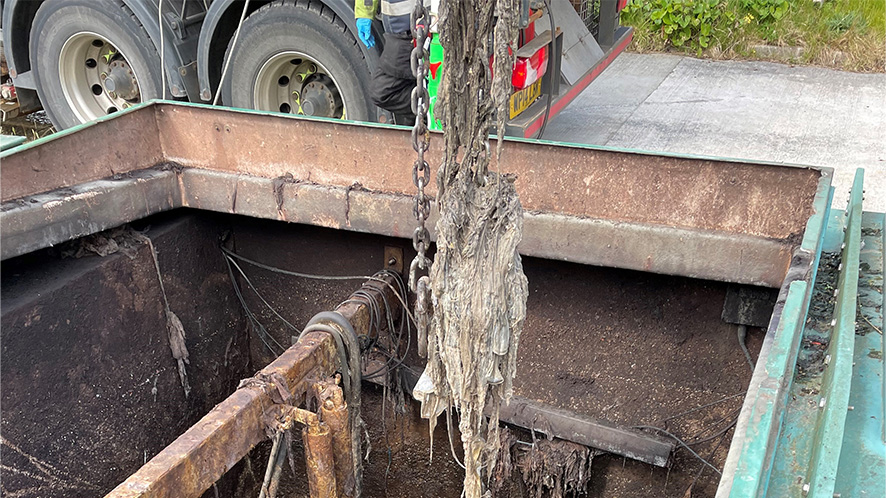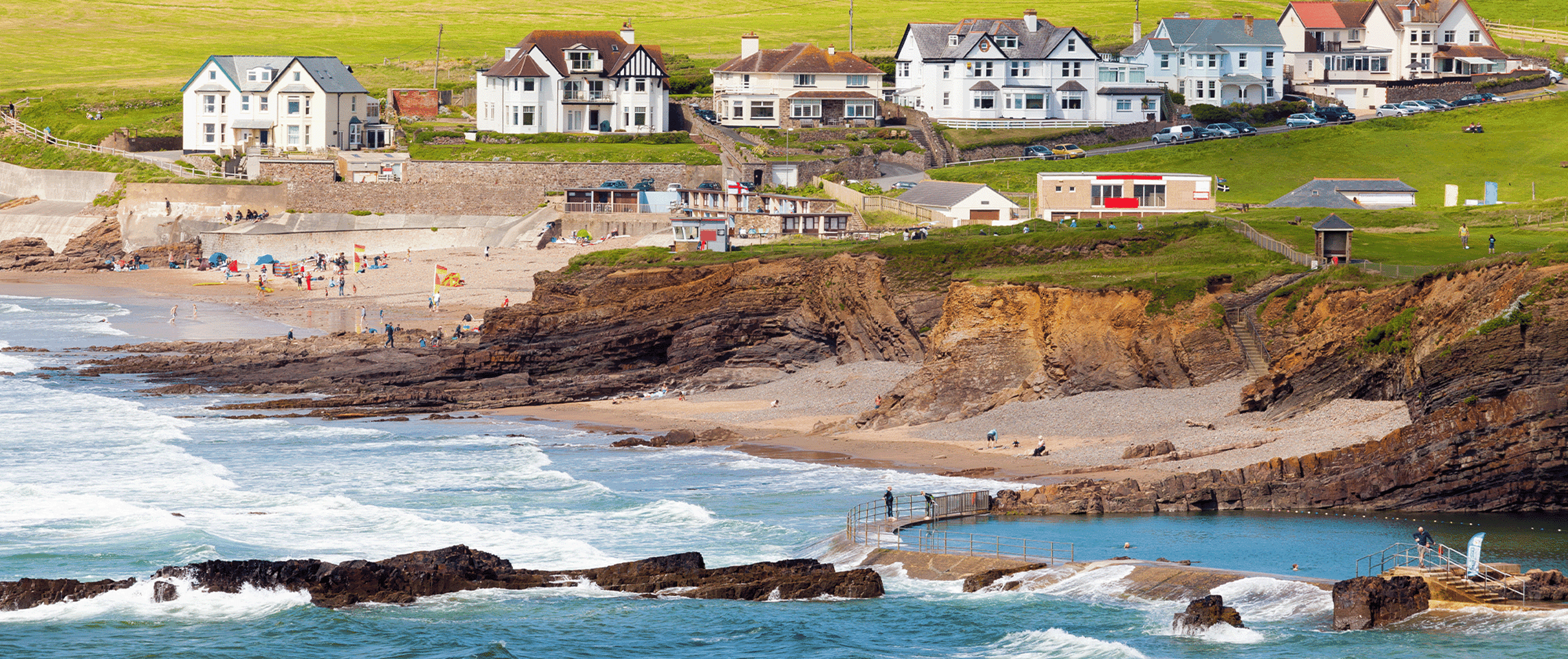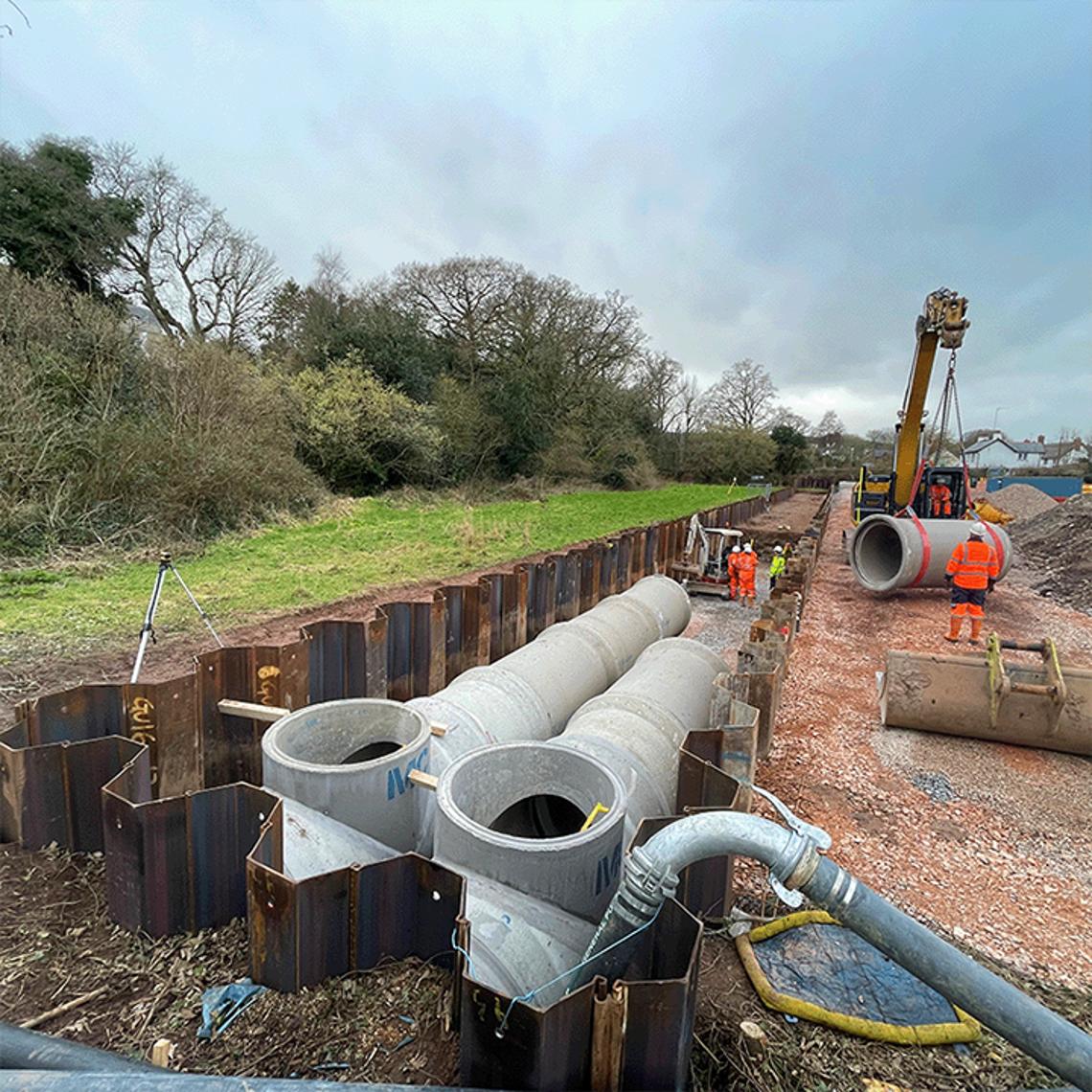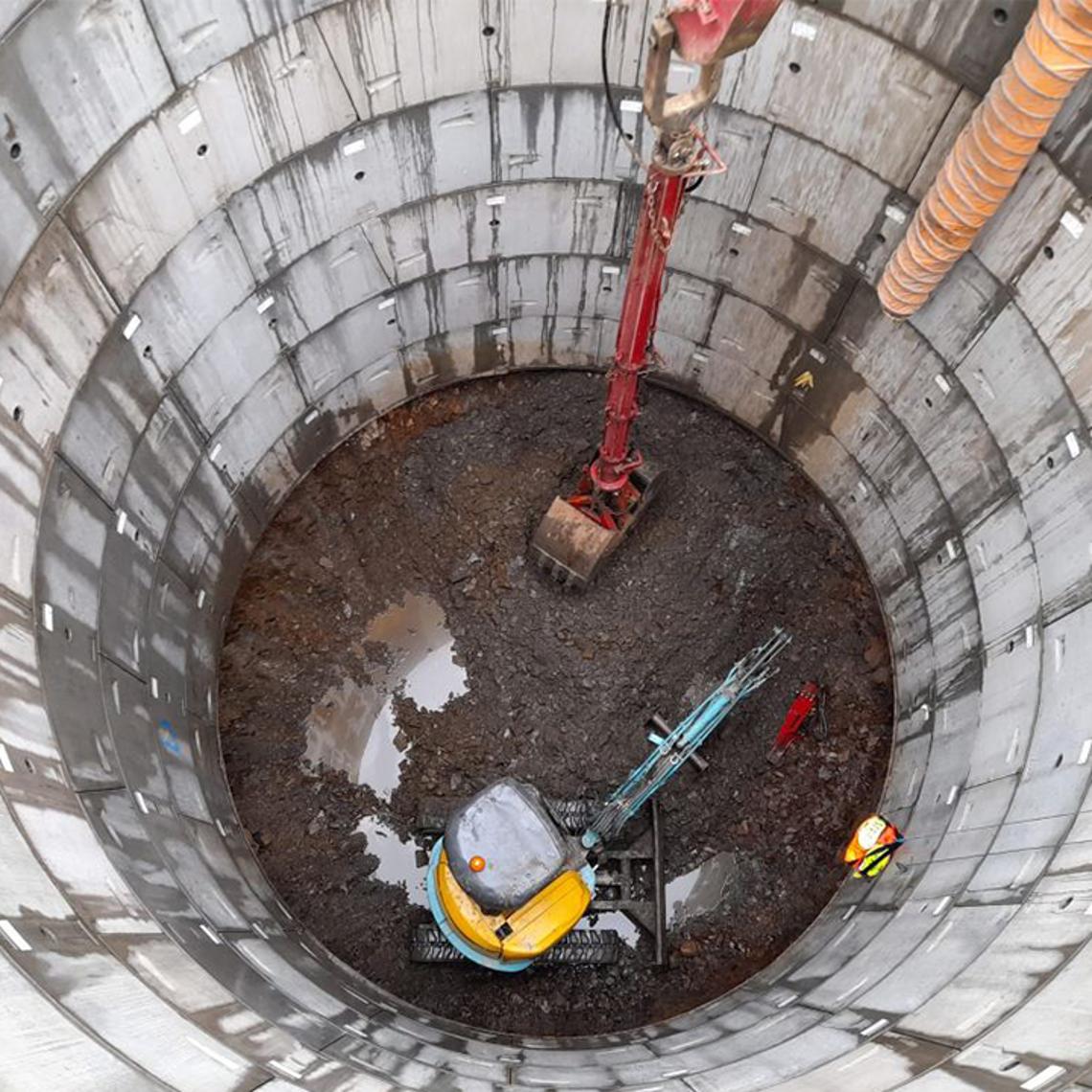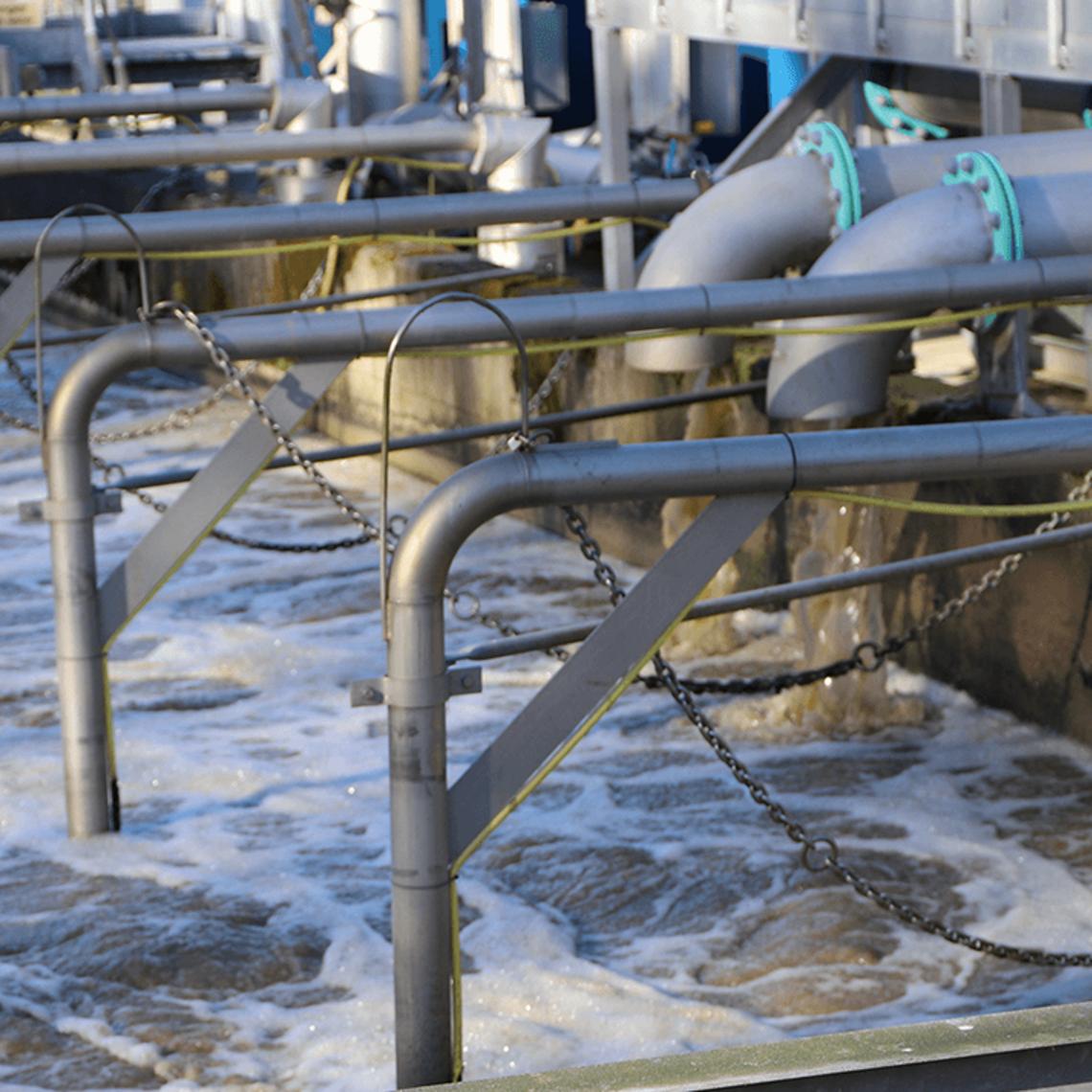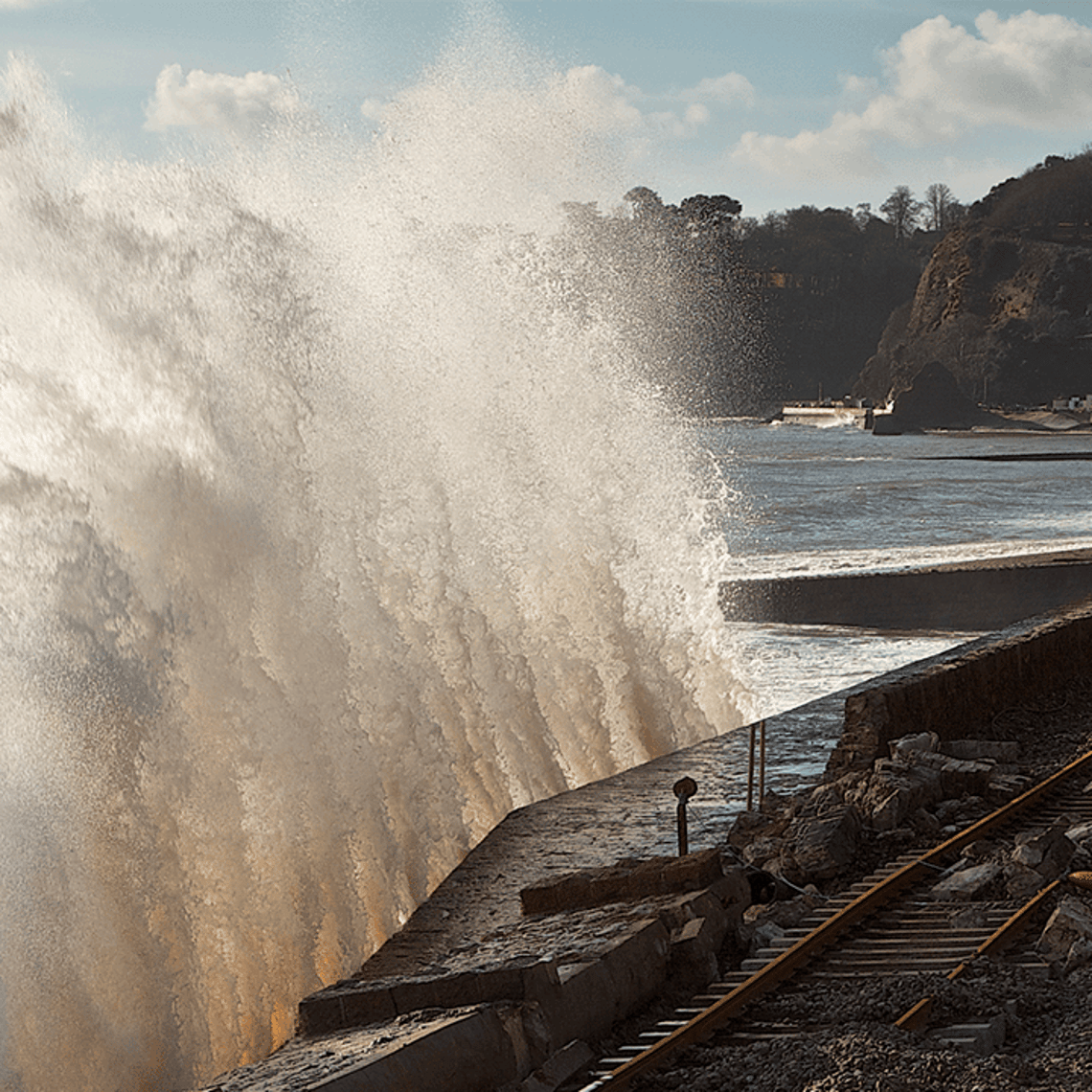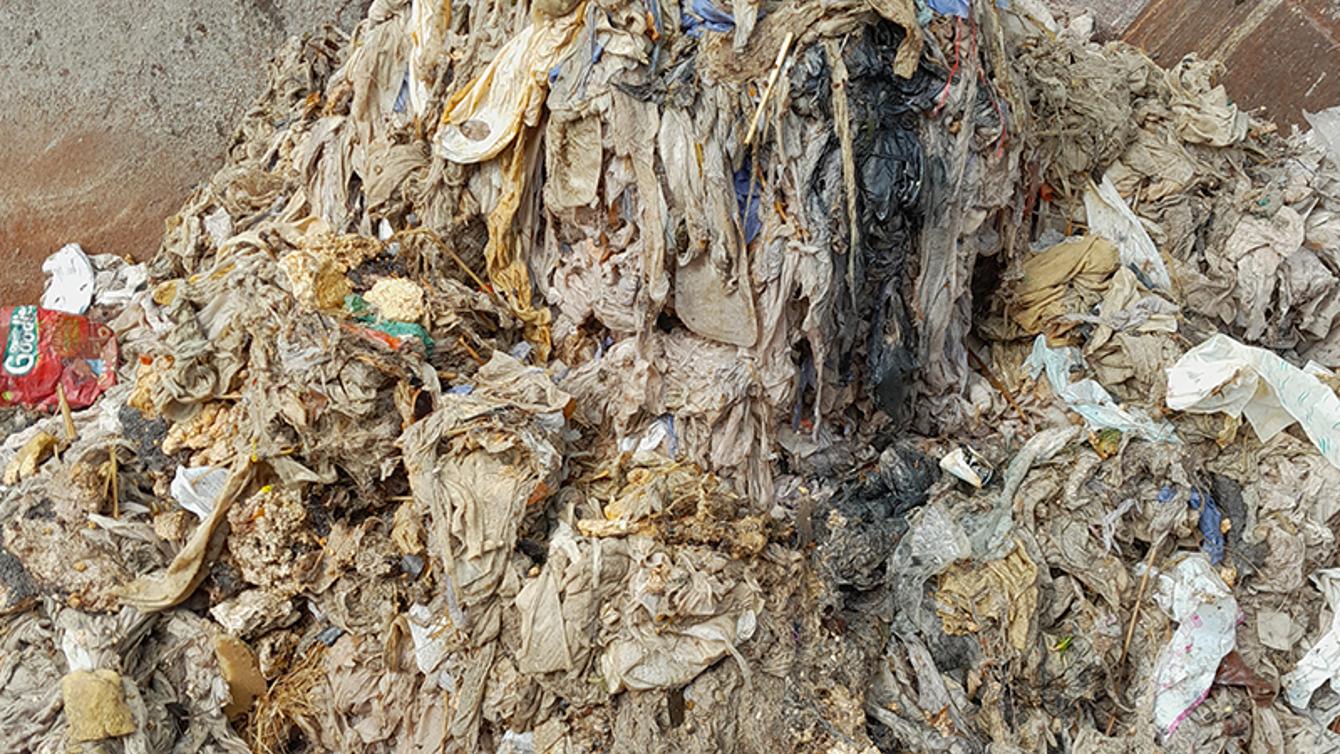About the catchment
In this area there are 54km of rivers and streams as well as a coastline which includes 31 designated bathing waters and 5 designated shellfish waters.
Why do we have storm overflows?
Storm overflows act like safety valves on the wastewater network. When the system becomes too full (for example, after heavy rain), storm overflows release the excess. If they didn’t work, sewage would build up in pipes and flood into people’s gardens and homes.
We want to reduce the need for storm overflows to operate, which is why we’re investing record amounts into improving, expanding and upgrading our network to better cope with the volumes of wastewater it deals with.
How we’re reducing our reliance on storm overflows in this catchment
We are reducing our reliance on storm overflows by:
- Reducing the amount of rainwater and groundwater entering our system
- Slowing the flow of water through the environment
- Increasing our network’s capacity to store and treat flows
Our monitoring teams constantly review data being sent back to us from our EDMs, sewer level monitors, river water quality monitors, flow and pressure monitors and water samples. This constant data-gathering is fundamental to modelling our system and identifying areas for improvement.
For this catchment, this means:
Case study: Peatland Restoration on Bodmin Moor
Slowing the flow of water through the environment
Our teams are doing an incredible job up on Bodmin Moor, restoring the natural peatland. This allows the land to hold water, so less runs off into the rivers (which has a negative impact on water quality). Looked after properly, peat also extracts huge amounts of carbon from the air which improves the environment in other ways.
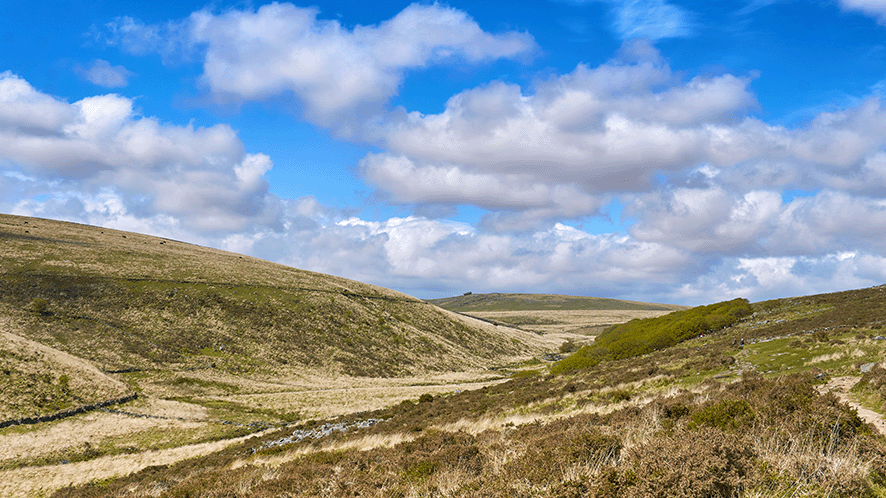
River health
We use the Environment Agency’s measures of river health to assess our impact on rivers. Ecological status of our rivers are at a national low (just 14% of rivers achieved Good in 2022).
Currently, in our area, 12% of Reasons for Not Achieving Good Ecological Status (RNAGs) are associated with our activity. We estimate that our investments into our storm overflows will reduce this to c.9% by 2025, and we aim to make further investment to reduce this to 0% by 2050.
There are a lot of other factors that impact the quality of river and coastal waters. The pie chart below shows what they were in 2023, and the percentage of RNAGs they caused.
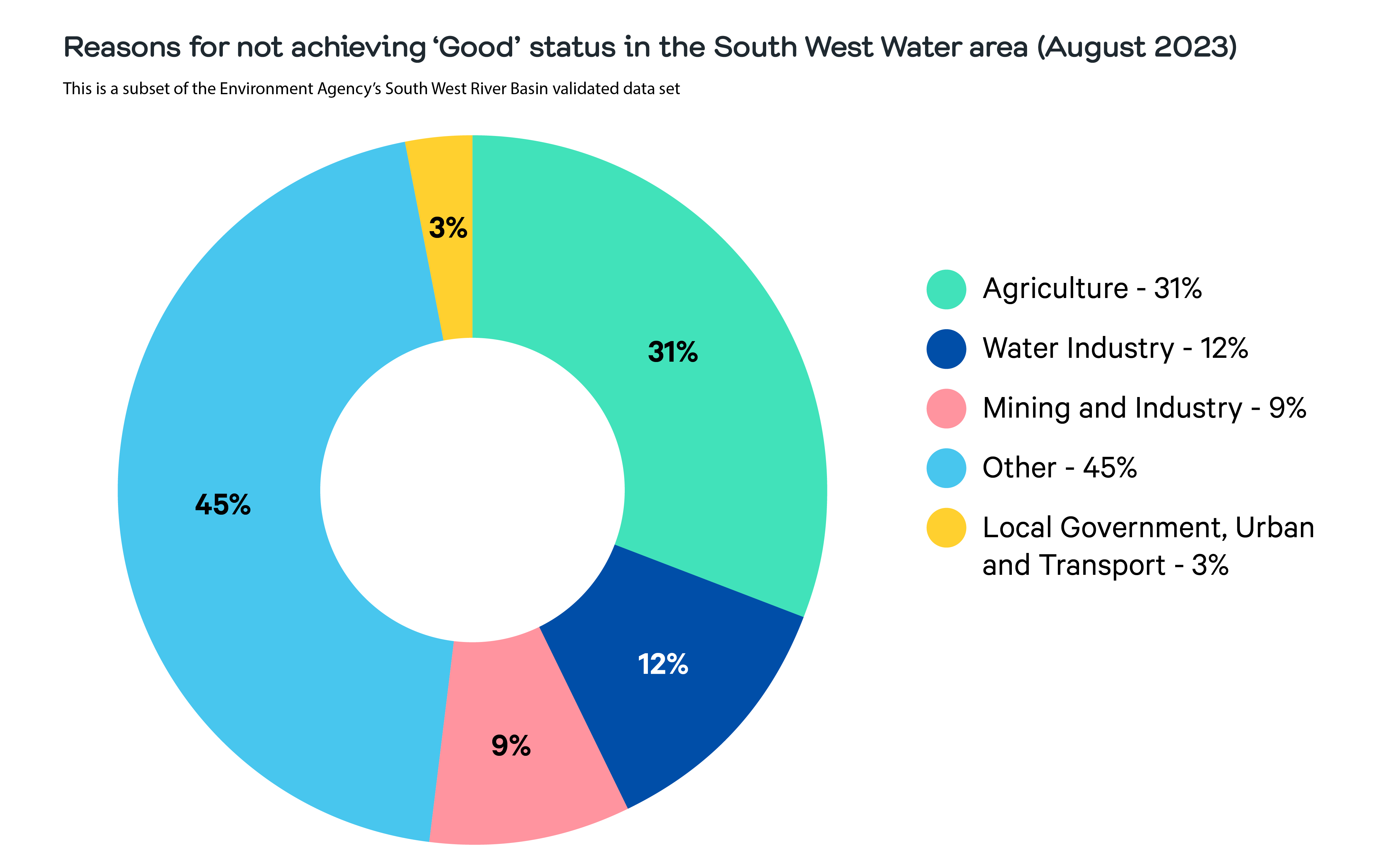
We work in partnership with others to improve water quality across our region and to help clean up the rivers in the South West.
The important role you play
A note for businesses
Areas of North Cornwall, Seaton, Looe and Fowey welcome up to 77.4% more people in the summer. This means it’s a hotspot for hotels, restaurants, and cafes. If you own a catering or food-related business, we’ve got some useful information just for you about using our sewers in the right way.
Living in and serving North Cornwall
Luke works as part on the wastewater team looking after the area’s pumping stations, and he’s passionate about raising awareness of the impact wipes can have in the sewers.
“A vast majority of the network issues are caused by things within the sewage network that should not be there,” he says, “for example, wipes can block the pumps causing them to fail and require the team to unblock.”
Hundreds of wipes can be removed from the system at once. “It’s really sad to see, because at the end of the day, the environment is the ultimate victim from our pumps not working properly. Just by simply binning wipes not flushing them keeps the pumps working and protects the environment.”
